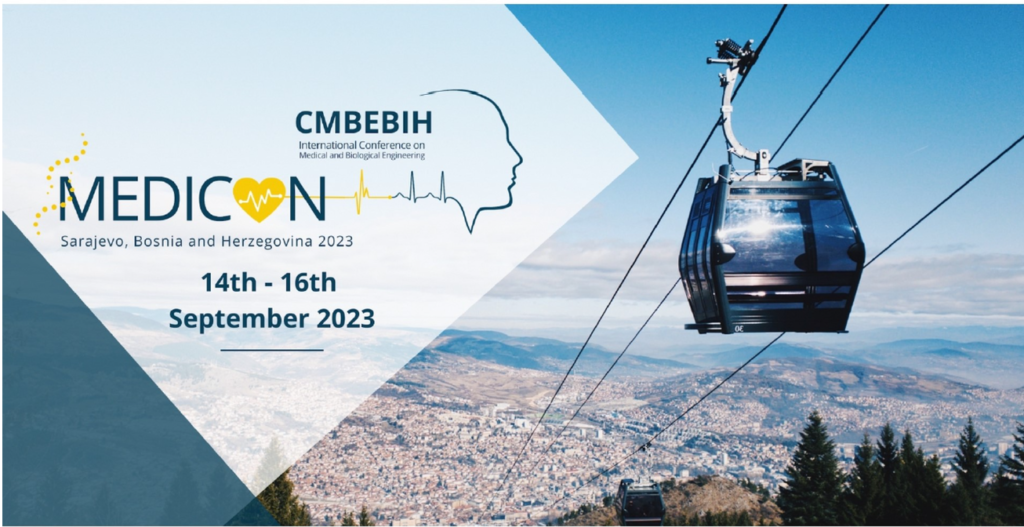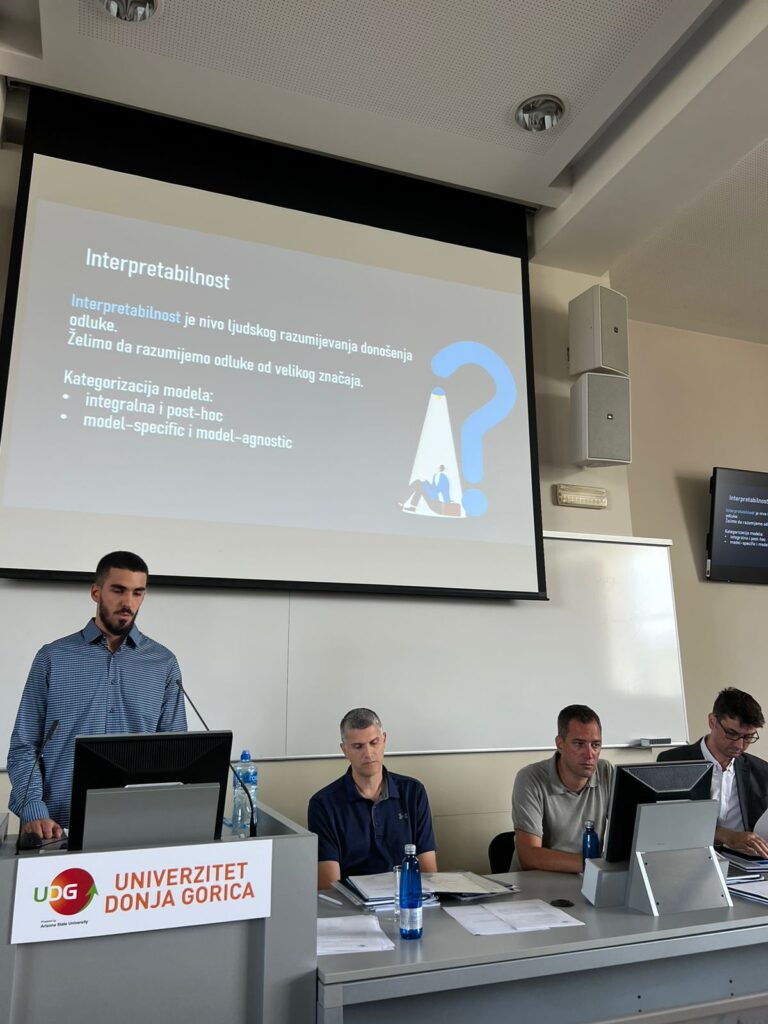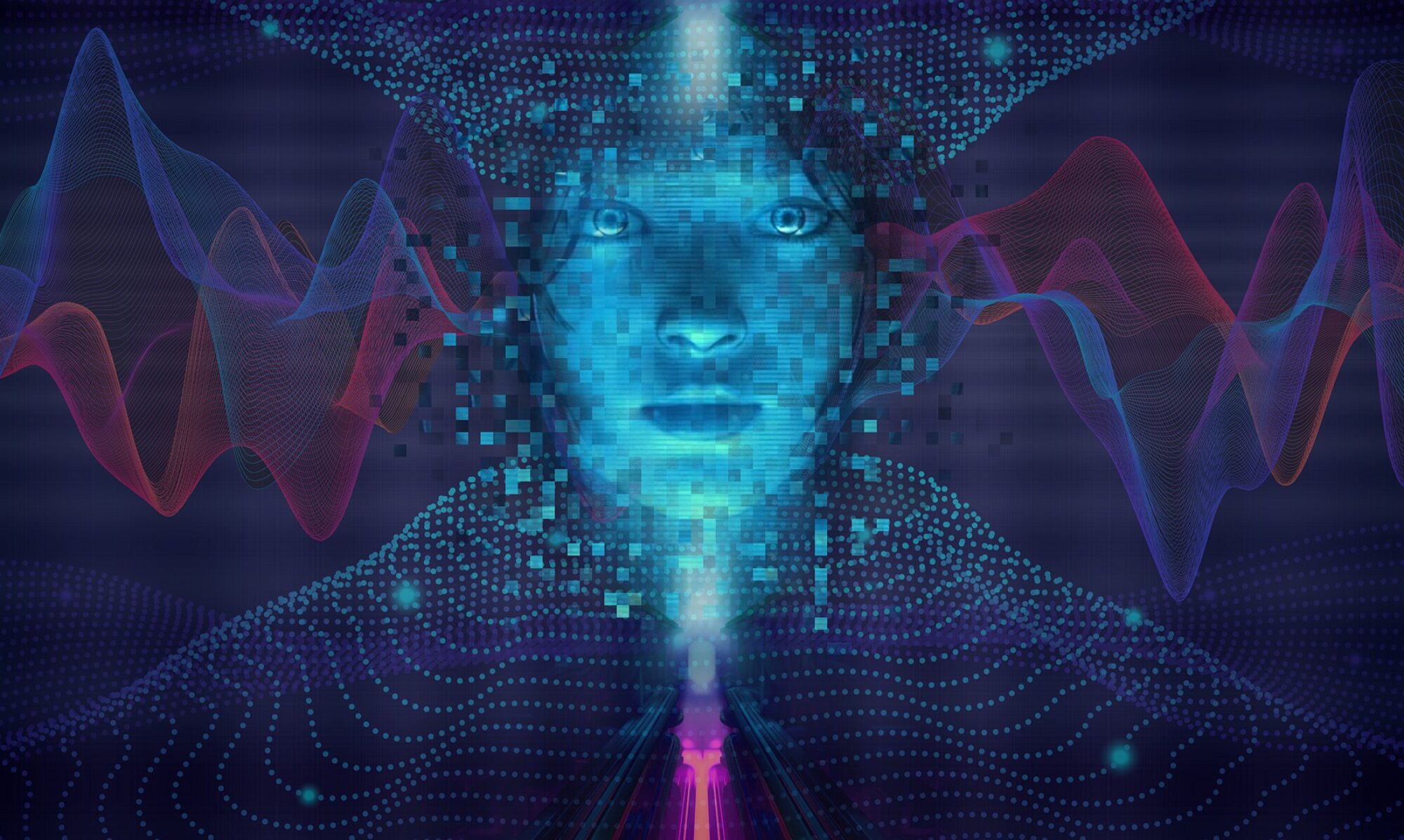Zoja spent 17 days at Arizona State University as an attendee of the Sustainable and Innovative Solutions Summer program. During the visit, she had the opportunity to participate in classes and learn more about sustainability and innovations, as well as to network with other participants and professors. As additional activities, she visited the Virtual Reality Classroom, Innovation Center, and Downtown Campus. Furthermore, she visited the ASU Decision Theater, which utilizes advanced technology and HPC to aid in collaborative decision-making, research, and visualization. For her final group project, she presented the possibility of the usage of Artificial Intelligence for an improved education system.
The program for the joint event CMBEBIH & MEDICON 2023
Our team members will participate in the joint event CMBEBIH & MEDICON 2023 Mediterranean Conference on Medical and Biological Engineering and Computing (MEDICON) International Conference on Medical and Biological Engineering (CMBEBIH). Several young researchers submitted their research results and conference papers for presentation at the MEDICON conference. The focus of these research papers is applying AI to different problems in health and medicine domain. The current version of the conference program is available at the following link.

BSc thesis: Artificial intelligence and big data analytics
Ms Elda Kalac defended her BSc hesis on artificial inteligence and big data analytics. In her thesis, she covered the fundamentals of artificial intelligence and machine learning, introduced some basic algorithms and provided discussion on big data and aplicability of AI to big data analysis.
ABSTRACT – This thesis explores the topic of artificial intelligence and big data analytics. The purpose of the study is to provide a theoretical framework for understanding the concepts of artificial intelligence and big data analytics, and to investigate their mutual interaction. The research methodology includes the selection of appropriate methods and algorithms for analyzing big data, description of the data used in the study, and planning of experiments and performance evaluation. Additionally, examples of artificial intelligence algorithms applied in big data analytics are presented. Through the analysis and interpretation of results, the implications of these techniques for enhancing data understanding and making informed decisions are discussed. The conclusion summarizes the main findings of the research and proposes avenues for further exploration. This work provides a foundation for further research in the field of artificial intelligence and big data analytics.

BSc thesis on AI and video games
On 18.07.2023, mr Elvis Taruh, a student from UDG presented his BSc thesis on the use of artificial intelligence in video games. His thesis gave an introduction to AI and alrogirthms that are used in games. Besides theorethical background, the thesis included a presentation of practical implementation of several simle video games programmed by the candidate.
ABSTRACT – The paper investigates the application of artificial intelligence (AI) in video games and its impact on the player’s experience. Basic concepts of AI are studied, as well as various methods of applying AI in games, including character management, combat algorithms, pathfinding algorithms, and mission and scenario generation. Ethical aspects of the application of AI in video games are also analyzed, including the impact on social interactions, detection and prevention of cheating, and the development and use of AI in the game industry. Through this paper, the importance of AI in improving the gaming experience is emphasized, but also questions about ethics and challenges faced by players while playing games are also raised. All the aforementioned analyzes provide the paper with an insight into the current state and future possibilities of the application of AI in video games.

AI4S3 – educational project proposal approved
The Innovation Fund of Montenegro (the Fund) publishes the list of projects approved for financing within the framework of the Public Call for encouraging the development of innovation culture and the organization of education in the areas of smart specialization. The fund allocated funds in the total amount of 130,000 euros for financing projects within two program lines according to this Public Call. The public call for the mentioned program lines was open from May 8 to June 15, 2023.

The Faculty of Information Systems and Technologies, University of Donja Gorica, proposed the educational project “Application of computer vision and deep learning in agriculture and food production, medicine and energy (AI4S3)” which was highly evaluated and approved for funding. This project focuses on training participants for the application of AI in the priority domains of the Smart Specialization Strategy of Montenegro (S3 Montenegro). This project is continuation of UDG and NCC Montenegro efforts to offer best education and training for HPC, AI and IT in general to Montenegrin stakeholders. The training will take place from October to December 2023. This effort is fully aligned with HPC4S3ME project goals and complementary fits into the promotion of HPC and AI in priority domains of Montenegrin S3.

BSc thesis on Explainable Artificial Intelligence
Mr Nikola Kavaric, an undergraduate student at UDG finalized his BSc thesis on Explainable Artificial Intelligence. This BSc work covered theoretical background and introduction to AI and ML and then covered intepretable and explainable AI and ML models. Explainable AI is critical research topic as we depend on the wide use of AI and ML prediction models in our everyday’s life.

BSc thesis on Generative Artificial Intelligence (GenAI)
Ms Tamara Lasica, an undergaduate student from UDG, just defended her BSc thesis on the development of generative artificial inteligence (GenAI). Her thesis work was done under the mentorship of prof. Tomo Popovic. The defence took place on 18.07.2023.
ABSTRACT – When OpenAI developed a new model of generative artificial intelligence and made it available to the public at the end of 2022, in the form of the chatbot ChatGPT, and the number of its users grew to 200 million within two months, a real explosion took place in the world of artificial intelligence and it became clear to everyone that nothing would be the same in the future.
This work tries to present and approach the reader in a systematized way this powerful technology that gives robots the ability to “talk” to us, and to create original content from text, to images, music and 3D animations, imitating human creativity at our request.
As generative artificial intelligence (GenAI) is rapidly developing and has the potential to change many industries, this paper considers numerous possibilities of its application, as well as the possibility of abuse and the necessity of introducing legal regulation of artificial intelligence.

